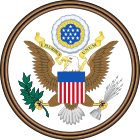Whistleblower Protection Act of 1778 facts for kids
The Whistleblower Protection Act of 1778 was an important law made during the American Revolution. It was created by the Second Continental Congress, which was like the government of the American colonies at the time. This happened when the British army was in Pennsylvania.
This law was made to protect people who reported bad behavior or problems. It encouraged American colonists to speak up if they saw officials doing something wrong. It also aimed to stop people from being scared or punished for telling the truth. The law was officially passed by Henry Laurens, who was the President of the Continental Congress, on July 30, 1778.
Why the 1778 Whistleblower Act Was Needed
The Whistleblower Protection Act of 1778 came about because of some serious issues. These problems involved a naval officer named Esek Hopkins and how he treated British prisoners of war. These prisoners were held on a ship called the USS Warren.
In early 1777, several sailors from the Continental Navy complained about Commodore Esek Hopkins. They sent their complaints to different groups, including the Continental Congress. The sailors said that Hopkins was "unfit" for his job. They claimed he was verbally abusive and treated prisoners in a "barbarous manner."
The sailors wrote that Hopkins was not a good leader. They believed he lacked good morals and set a bad example for his crew. They also thought he was making it hard to find new sailors for the ship. People were afraid to join the fleet because they might end up serving under him. The sailors felt it was their duty to report this. They hoped an investigation would make the navy stronger and more effective for America.


